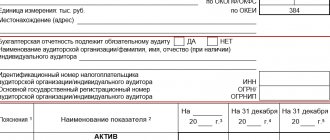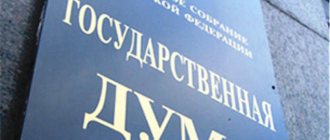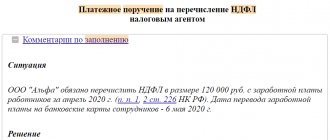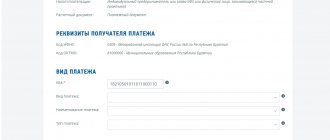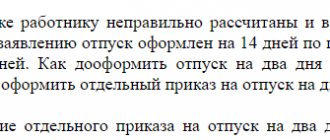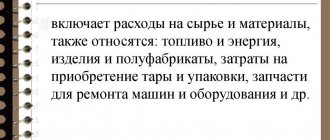The Tax Inspectorate received the authority to calculate and control the payment of insurance premiums in 2021, when the Tax Code of the Russian Federation was supplemented with Chapter 34 with the appropriate title.
Insurance premiums are not a tax in their legal essence, but the procedure for paying them to the state is similar. Including, there are types of income (they are listed in Article 422 of the Tax Code of the Russian Federation) that are not subject to insurance contributions. In 2021, their number remains the same, but there are some changes in the legal norm. Next, we will consider the provisions of the article in more detail.
Where to look for what is not subject to insurance premiums
In 2021, to understand what income is not subject to insurance premiums, you need to refer to Article 422 of the Tax Code. This article contains a closed list of positions. And this is important. Let us explain why. If you suddenly wonder what accruals are not subject to insurance contributions and in Art. 422 of the Tax Code of the Russian Federation did not find any mention of the corresponding amounts from your case, which means that contributions will still have to be calculated on them. Please note that tax authorities extremely do not like broad interpretations of closed lists by the persons they check in their favor. So, be prepared to defend your position if you think that in your case the amounts are not subject to insurance premiums.
Let’s say right away that there have been no global changes regarding payments that are not subject to insurance premiums. Their composition is quite uniform across different companies and individual entrepreneurs, so they almost mirrored the transition from the Law on Insurance Contributions No. 212-FZ to the new Chapter 34 “Insurance Premiums” of the Tax Code of the Russian Federation.
Also see “New chapter on insurance contributions to the Tax Code of the Russian Federation from 2021.”
Contract price
Among other things, an increase in the tax burden may also affect the conclusion of a purchase and sale agreement if the real estate is sold before the minimum period has expired.
It is no secret that the seller and buyer often underestimated the price of the property in the contract. Now such a trick will not help. The Tax Code has been supplemented with a provision that is designed to eliminate the possibility of underestimating prices to reduce taxes.
How is this done?
According to the innovations, when selling real estate before the expiration of the minimum period of ownership, income is recognized as equal to the cadastral value of the property as of the beginning of the current year (year of sale) and is multiplied by a factor of 0.7.
This rule applies when the sales price in the contract is lower than the cadastral value.
Thus, the minimum tax will have to be paid in any case if the sale occurs before the minimum period. And it will be easy to calculate: you just need to know the cadastral value of your property.
A complete list of what is not subject to insurance premiums
For convenience, we will show which payments are not subject to insurance premiums in 2021, in the form of a table.
| Type of payment | Explanation |
| State federal, regional and local benefits | This includes unemployment benefits and other amounts required under compulsory social insurance. |
| All types of compensation from the state (within standards) | They may be associated with: • harm from damage to health; • free provision of housing, payment for housing and communal services, food, fuel or their cash equivalent; • issuing products or money in exchange; • payment for some sports nutrition and other attributes for professional sports; • dismissal (exception: a) compensation for unclaimed leave; b) severance pay and average monthly salary over 3 times the amount (six times in the northern territories); c) compensation to the manager, his deputies and the chief accountant in excess of three times the average monthly salary); • training, retraining and advanced training of personnel; • costs of the contractor under a civil agreement; • employment of those laid off due to layoffs, in connection with the reorganization or closure of an organization, individual entrepreneur, notary, lawyer, etc. • performance of labor duties, including moving to another place (exception: money for negative labor factors), compensation for dairy products , for unclaimed leave (when not related to dismissal). |
| Disposable mat. help | • people due to natural disasters or other emergencies for compensation for material damage or harm to their health, as well as victims of terrorist attacks in the Russian Federation; • an employee whose family member has died; • employees at the birth (adoption) of a child (including guardianship) in the first year. Limit: up to 50 tr. for each child. |
| Income of indigenous peoples from their traditional trade | Exception: wages |
| Amounts of insurance contributions | Includes: • contributions for compulsory personnel insurance; • contributions under contracts of voluntary personal insurance of employees with a period of 1 year for medical payments. expenses; • contributions under medical contracts. services to employees for a period of 1 year with licensed honey. organizations; • contributions under voluntary personal insurance contracts in the event of one's death/or harm to health; • pension contributions under non-state pension agreements. |
| Additional employer contributions to funded pension | Up to 12 tr. per year per employee |
| The cost of travel for workers from the northern territories to the place of vacation and back and baggage allowance up to 30 kg kilograms | If you are on vacation abroad, then the cost of travel or flights (incl. luggage up to 30 kg) is not taxed. |
| Payments from election commissions, referendum commissions, from election funds | To positions elected in the Russian Federation: from the President of the Russian Federation to the local level |
| Cost of uniforms and uniforms | Issued by force of law, as well as to civil servants. Free or with partial payment. Remains for personal use. |
| Cost of travel benefits | Provided by law to certain categories of workers |
| Mat. assistance to employees | Up to 4000 rub. per person per billing period |
| Payment for employee training | For basic and additional professional educational programs |
| Amounts to employees to pay interest on loans and credits | This means that the loan was taken for the purchase and/or construction of housing |
| Cash allowance, provision of food and things | Applies to the military, police department, fire service, heads of federal courier communications, employees of the penal system, customs authorities |
| Payments and other remuneration under labor and civil law contracts (including author’s orders) in favor of foreigners, stateless persons temporarily staying in the Russian Federation | Exception: when such persons are recognized as insured under Russian law |
Note that in many of the cases listed above, an employment agreement or a civil law contract allows you to issue not only money, but also some kind of bonus. Which insurance premiums are not subject to will be clear from the type of contract (agreement) with the person. In other cases, there are no premiums that are not subject to insurance contributions.
Types of activities for the self-employed in 2021
What can a self-employed person do? Tutoring, cleaning premises, preparing homemade baked goods, providing cosmetologist services, etc. Also, owners of apartments and rooms for rent often switch to paying NAP.
At the same time, there are types of business that do not give the right to become a professional tax payer. The black list includes:
- sale of excisable goods;
- sales of products subject to mandatory labeling (tobacco products, medicines, shoes, etc.);
- resale of goods, property rights (except for property that was used for personal, household and other similar needs);
- extraction and (or) sale of minerals;
- intermediary services on the basis of commission, commission or agency agreements (except for the situation when the intermediary uses cash register equipment registered by the principal, principal or principal);
- services for delivering goods and receiving money from the buyer (except for cases when cash register equipment registered by the seller of the goods is used).
Payments for business trips
Let's focus on excess daily allowances. These amounts remained the same in 2021: from 700 rubles. within Russia and from 2.5 thousand for foreign trips. But in 2021, contributions will have to be calculated for exceeding these values.
This income tax rule also applies to large daily allowance contributions. Therefore, one can only say with a stretch about daily allowances that this is income not subject to insurance premiums.
For more information about this, see “How per diem is assessed in insurance premiums from 2021.”
Here’s something else that is not subject to insurance premiums and is directly related to business trips. These are the costs for:
- the path to the destination and back;
- airport taxes;
- commissions;
- way to the airport, train station (including transfers);
- baggage transportation;
- rental housing;
- mobile communications;
- fee for obtaining a foreign passport;
- visa fees;
- commission for currency exchange (check at the bank).
Similar rules on payments that are not subject to insurance premiums apply to members of the company's senior management bodies. When they come to a meeting of the board of directors, board, etc.
Basic amendments to personal income tax
Summarizing the changes made, we can draw the following conclusions:
- The classification of objects exempt from income tax has changed. Now objects can be divided into two parts: real estate and other property. Specific mention of types of real estate (e.g. apartment, room, house, etc.) is excluded. Thus, it is possible to exempt any real estate from tax.
- The deadline for ownership of property, on which the possibility of exemption from personal income tax depended, has changed. More precisely, new and different deadlines have been established for the ownership of property.
- Subjects of Russia are given the right to independently determine the maximum period for owning real estate.
More income not subject to insurance premiums
Some amounts that are not subject to insurance premiums are somewhat different from all of the above. They are obviously not included in the contribution base (see table below).
| What are the fees? | What amounts |
| Contributions to OPS | Payments to: • prosecutors, investigators, federal and magistrate judges; • full-time students for activities in official student groups under labor or civil law agreements. |
| Contributions for illness and maternity | Any payments under the GPA: copyright, on the alienation of exclusive rights, publishing, licensing on the right to use a work of science, literature, art |
Which regions support the new special mode?
From January to June 2021, NAP can be paid in 23 regions. These include:
- cities of federal significance: Moscow, St. Petersburg;
- regions: Volgograd, Voronezh, Kaluga, Leningrad, Moscow, Nizhny Novgorod, Novosibirsk, Omsk, Rostov, Samara, Sakhalin, Sverdlovsk, Tyumen, Chelyabinsk;
- regions: Krasnoyarsk, Perm;
- autonomous okrugs: Nenets, Khanty-Mansi Yugra, Yamalo-Nenets;
- republics: Bashkortostan, Tatarstan.
When selling goods remotely (for example, over the Internet), the place of business is determined by the self-employed citizen. He must choose between the location of the seller and the location of the buyer. This is stated in the letter of the Federal Tax Service dated November 18, 2019 No. SD-4-3 / [email protected] (see “How can a self-employed person determine the place of business when trading via the Internet”).
Starting from July 2021, NAP is allowed to be applied in all constituent entities of the Russian Federation without exception.
The most common payments: explanation
Civil contracts
In 2021, payments under civil law contracts, for the purchase of property or property rights are not subject to insurance premiums. As, indeed, under lease, loan, leasing, donation and other agreements, under which property and property rights are transferred for temporary use. An exception is contracts for construction, paid services, as well as copyright agreements. Payments under these agreements are subject to contributions. This follows from paragraph 4 of Article 420 of the Tax Code.
Prizes, pensions and scholarships
There is no need to charge insurance premiums when issuing prizes to customers, supplementing pensions to former employees, or paying scholarships under student contracts (including to full-time employees).
Material benefit
There is no need to pay insurance premiums for the material benefit that the employee receives due to savings on interest when receiving an interest-free loan from the employer.
Payments within the framework of labor relations
Let us repeat that Article 422 of the Tax Code of the Russian Federation establishes a closed list of payments that are exempt from insurance premiums in 2018. In particular, these are:
- state benefits that are paid in accordance with the legislation of the Russian Federation (subclause 1, clause 1, article 422 of the Tax Code);
- all types of compensation to employees determined by law within the limits established by the legislation of the Russian Federation. For example, severance pay within three times the average monthly salary (subclause 2, clause 1, article 422 of the Tax Code);
- amounts of one-time financial assistance to parents, adoptive parents or guardians upon the birth or adoption of a child. But only when such assistance is paid within the first year after birth or adoption and in an amount of no more than 50,000 rubles. for each child (subclause 3, clause 1, article 422 of the Tax Code);
- contributions for compulsory insurance of employees (subclause 5, clause 1, article 422 of the Tax Code);
- payment for training of employees for basic and additional professional programs (if the training is related to the professional activity of the employee and is carried out at the initiative of the organization) (subclause 12, clause 1, article 422 of the Tax Code), etc.
Read also
15.01.2021
How and for what you need to pay taxes
In addition to the taxes that we actually pay when buying a new hat or blouse (sellers, as a rule, include VAT, excise taxes, some fees and duties in the price of goods), we have to share with the state in other circumstances. Namely, when receiving income and having property rights.
Income tax, or simply personal income tax
According to Russian legislation, most of the income we receive (salaries, vacation pay, income from the sale of a car, house, apartment) is subject to personal income tax (NDFL). This is a federal tax, therefore it is mandatory and uniform throughout the Russian Federation. The rates at which this or that income is taxed are different: 9, 13, 15, 30, 35 percent. With so many options, the question arises: in which case should we pay a tax rate of 9 percent, and in which case at a rate of 30? The answer depends on two factors: the status of the taxpayer and the type of income received.
A personal income tax payer may have resident or non-resident status. Just don’t confuse a tax resident with a resident intelligence officer. Individuals, that is, you and me, are recognized as tax residents of the Russian Federation if they have lived in Russia for at least 183 days within 12 consecutive months. If our stay in the country lasted less than this period, then we are recognized as non-residents (with the exception of trips for treatment and education). The opposite happens to foreigners. They come to Russia as non-residents, and after living here for a total of more than 183 days, they accept a new status - tax resident of the Russian Federation.
As we have already said, personal income tax rates and the income that is subject to this tax will depend on the taxpayer’s status. So, tax residents pay personal income tax at a basic rate of 13 percent and two special rates: 9 and 35 percent. By the way, residents pay tax not only on income received in Russia, but also from sources abroad. For example, if you rented out a cottage in Spain for the summer or received dividends and interest from securities invested in foreign companies, please pay tax.
We must not forget that personal income tax is also collected from the amounts that the employer spent on travel, food, rest, training, health insurance, etc. for its employees. Moreover, the payment of tax in this case occurs at the expense of the employee’s income received in cash.
If the payer is recognized as a non-resident, then he will pay tax on income received from sources in the Russian Federation (for example, wages, remunerations, dividends and interest received from Russian organizations, etc.). For income of non-residents, rates of 15 and 30 percent apply. Thus, dividends received from Russian organizations are taxed at a rate of 15 percent. On other income, a non-resident will have to pay 30 percent.
If you own...
...a piece of land, a country house, an apartment, a car, then you are required to pay land tax, property tax, and transport tax.
Land tax
Land tax is classified as local and is regulated by federal legislation (Tax Code of the Russian Federation) and regulations of local government. For Moscow and St. Petersburg - according to the laws of these cities.
Local authorities determine only the rates (within the limits established by the Tax Code), the procedure and timing of tax payment. The remaining elements of the tax, in particular benefits, are regulated exclusively by the code (unlike, for example, transport tax, benefits for which can be established by local authorities).
The obligation to pay land tax arises from owners of plots located within the municipalities where this tax applies. A tax payer is a person who has ownership rights, or rights of permanent (perpetual) use, or rights of lifelong inheritable donation to a land plot subject to taxation.
The tax is calculated based on the cadastral value of land plots. Since this tax is local, the rates are set by local authorities. However, the maximum rates are determined by the Tax Code: 0.3 percent of the cadastral value of one hundred square meters for agricultural plots occupied by housing stock, personal subsidiary plots (for example, a farmer’s field, a summer cottage); 1.5 percent for other land plots. Local authorities have the right to set differentiated rates depending on the category of land and (or) the permitted use of the land plot.
Property tax
Property tax was introduced in 1991. The objects of taxation are residential buildings, apartments, dachas, garages and other buildings, premises and structures.
This tax is paid by the owners of property recognized as the object of taxation. If property, for example an apartment, is owned by several people (shared or joint), then all owners must pay the tax (except for cases where the payer is exempt from this obligation). So, if an apartment is “divided” between the owners, then property tax is paid by each owner of the share in proportion to its part. In the case of common joint property, the owners of the property are equally responsible for paying the tax, but one of the owners can share with the state (by agreement of the parties).
Property tax for individuals is a local tax, therefore rates, benefits, payment deadlines and other elements of the tax are established by local governments. For example, in Moscow, depending on the inventory value of property, tax rates range from 0.1 to 0.5 percent.
Transport tax
Transport tax is regional. It is established, put into effect and paid on the territory of the corresponding constituent entity of Russia (region). The Tax Code of the Russian Federation defines only general rules and conditions of taxation. But the regional authorities determine the specific rates, payment terms and objects of taxation independently. At the same time, regions can increase or decrease the rates specified in the Tax Code, but no more than five times. Thus, the conditions for calculating and paying transport tax will depend on the region in which the vehicle is registered. The tax is paid by those persons to whom a car, motorcycle, etc. is registered.
The base from which this tax is calculated depends on the type of vehicle. Thus, for cars, motorcycles, and scooters, the basis for calculating the amount of tax is the engine power in horsepower.
This tax has a progressive rate, that is, as engine power increases, the tax rate also increases. For example, in Moscow, cars with an engine from 70 to 100 horsepower are taxed at a rate of 7 rubles per unit of power, and from 100 to 150 - at a rate of 20 rubles, etc.
Government duty
In addition to the listed taxes, we sometimes have to pay fees and duties, which, by the way, are also part of our tax obligations to the state. Fees are charged for various legal actions: registration of passports and other documents, registration of vehicles, real estate, notarization of documents, etc.
The amount of state duty is established by the Tax Code for each type of action. For example, for notarization of a certificate of inheritance rights, children (including adopted children), spouse, parents, full brothers and sisters of the testator will have to pay 0.3 percent of the value of the inheritance, but not more than 100,000 rubles. But for other heirs, the state duty is set at 0.6 percent of the value of the property, but not more than 1,000,000 rubles.
Types of awards
The most common types of monetary rewards include:
- individual or collective incentives for completing assigned tasks and conscientiously fulfilling duties;
- rewards for exceeding plans and achieving high performance results;
- incentives for completing special tasks;
- payments when an employee reaches significant length of service;
- awards for special services;
- one-time bonuses on the occasion of an important event, for example, dedicated to professional or public holidays, the founding date of an organization, or anniversaries of company employees.
There are different types of employee benefits
Depending on the internal rules of the organization and the decisions of management, employees may be paid several different types of bonuses at once. There are one-time incentives, as well as regular ones, which are awarded based on the results of a certain period. The bonus amount may be set at a certain amount, periodically revised over time, or may be a percentage of salary.
Attention! Moreover, such incentive payments are subject to mandatory tax established by law.
Deregistration of a self-employed person
To deregister as an NPT payer, you need to submit an application through the “My Tax” application. This is done in one of the following cases:
- Professional income since the beginning of the year has exceeded 2.4 million rubles.
- The citizen began to engage in activities from the “black” list.
- A self-employed person now has hired workers.
- The citizen has lost the desire to be a NAP taxpayer.
Inspectors will deregister a self-employed citizen on the day the application is submitted.
It may happen that a person continues to consider himself self-employed, although his income has exceeded the limit, he has hired employees, or he has started running a business from the “black” list. If employees of the Federal Tax Service discover this, they themselves will stop registering an individual as an NPT payer, without waiting for an application from him.
General payment issues
The new reporting forms have been developed by the Federal Tax Service and are quite simple to use. When transferring funds, you must remember that the recipient's details have changed and ensure that payment documents are filled out correctly. Budget classification codes are uniform for the entire country, but the remaining details depend on which inspection agency the business entity is registered with.
Budget classification codes related to payments to the Federal Tax Service begin with three digits “182”. If an error is made when preparing payment documents, you must contact the tax office in a timely manner to transfer funds using the correct details, if possible, or return them. In addition, if an error is made, the payment obligation cannot be considered fulfilled, which threatens the accrual of penalties. However, errors in KBK can be recognized at the processing stage, and funds will be transferred automatically to the correct account, but this does not always happen.
Although the funds are transferred to the details of the Federal Tax Service, they ultimately go to the accounts of policyholders in the corresponding funds.
